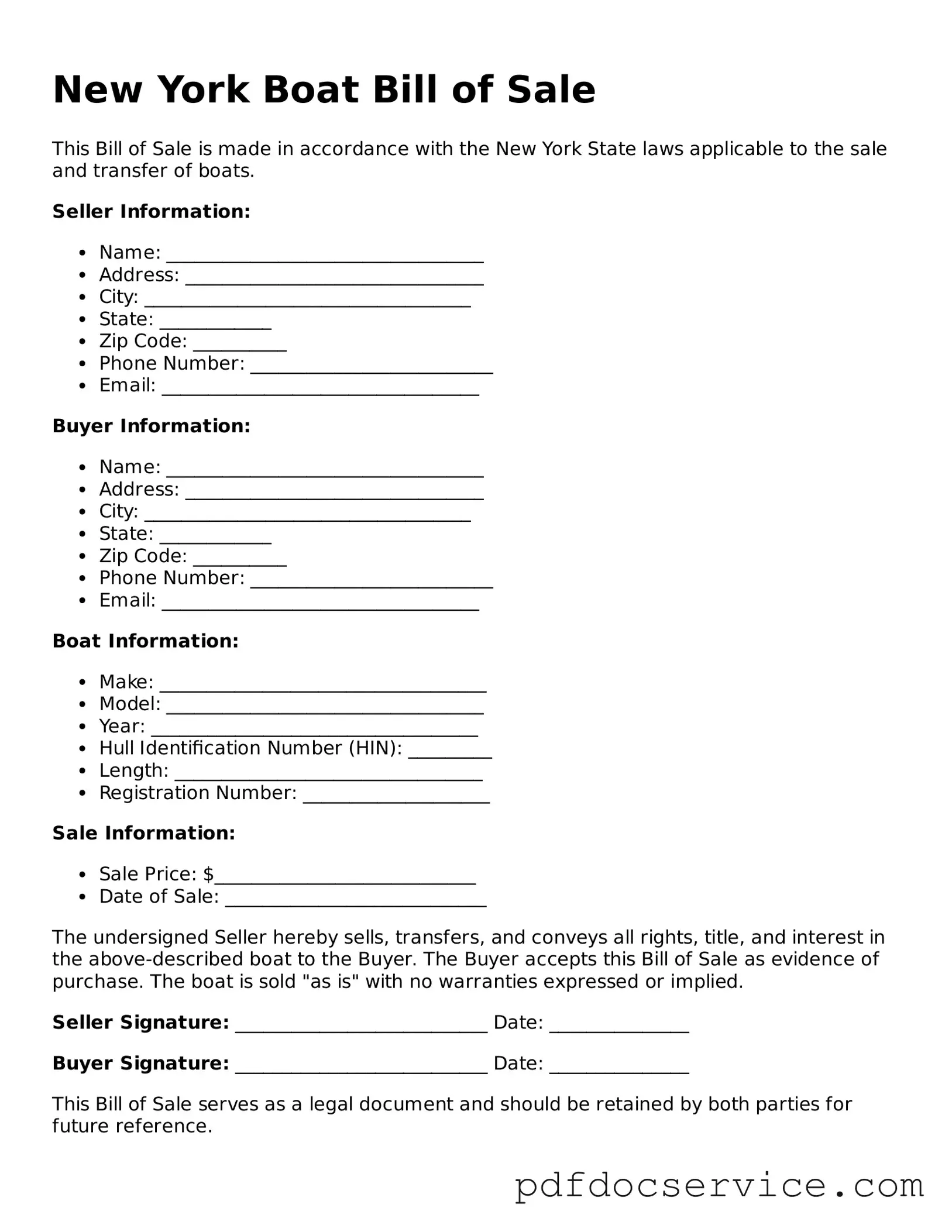Printable Boat Bill of Sale Template for New York
The New York Boat Bill of Sale is a legal document that facilitates the transfer of ownership of a boat from one party to another. This form serves as proof of the transaction, detailing essential information about the vessel and the parties involved. Understanding its components is crucial for both buyers and sellers to ensure a smooth and legally sound transfer process.
Open Boat Bill of Sale Editor

Printable Boat Bill of Sale Template for New York
Open Boat Bill of Sale Editor

Open Boat Bill of Sale Editor
or
Get Boat Bill of Sale PDF
Finish the form now and be done
Finish Boat Bill of Sale online using simple edit, save, and download steps.